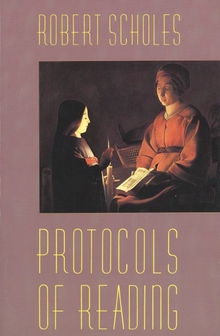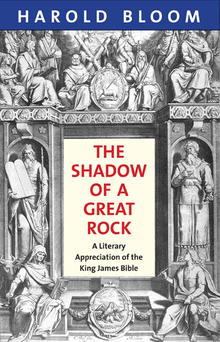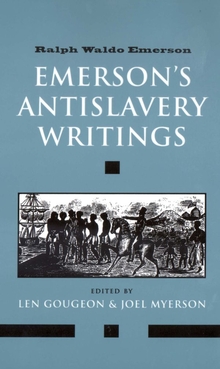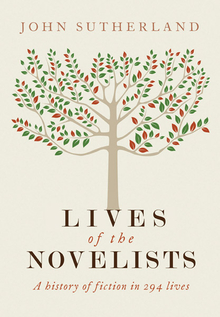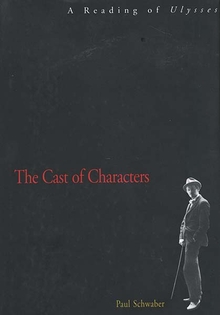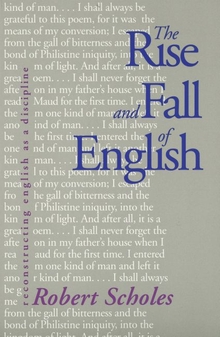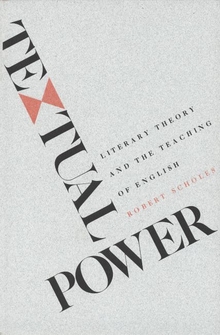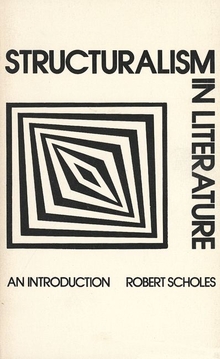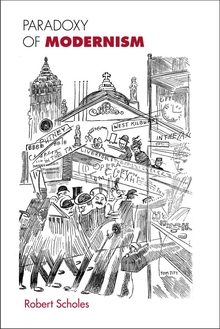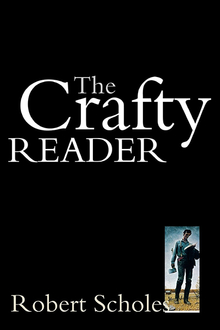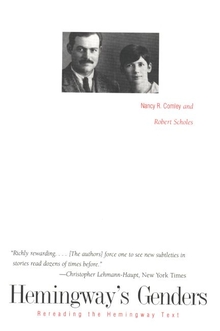Protocols of Reading
WARNING
You are viewing an older version of the Yalebooks website. Please visit out new website with more updated information and a better user experience: https://www.yalebooks.com
Robert Scholes
Discussing a wide range of literary theory in a clear and accessible way, prize-winning author Robert Scholes here continues his ongoing construction of a humane semiotic approach to the problems of reading, writing, and teaching. Taking the view that “all the world’s a text,” Scholes considers numerous texts from life and literature, including photographs, paintings, and television commercials as well as biographies and novels.
“A significant and thoughtful effort to think about the responsibilities of reading in the wake of deconstruction.”—Choice
Protocols of Reading is a personal, avuncular book, attractive in its common sense and brevity.”—Wendy Steiner, Times Literary Supplement
“A complex argument developed in delightful plain English, Protocols of Reading sees both textual fundamentalism and deconstructive debunking as needful opposites in an oscillation that Scholes labels nihilistic hermeneutics. Fine-tuning this oscillation is what the humanistic enterprise is all about, he suggests; it is our key to the true connection between reading and ethics.”—Richard A. Lanham, University of California, Los Angeles
Robert Scholes, Andrew W. Mellon Professor of Humanities at Brown University, is also the author of Textual Power: Literary Theory and the Teaching of English; Semiotics and Interpretation; and Structuralism in Literature: An Introduction
"A pleasure. . . . Scholes tightly packs this elegant little book. Yet he attains some calm at the very end, proposing in a quiet and simple style that we ought to read personally, in an ethical manner."—Frances L. Restuccia, Journal of English and Germanic Philology
"A wonderful book. Scholes’ defence of a hermeneutic of presence is lucid, persuasive, and much needed. He affirms the possibility of successful communication and emphasizes that readers have a responsibility to read back towards writers’ intentions as well as forwards towards their own experiences."—Elizabeth A. Flynn, Prose Studies
"Grounded. . . systematic, and . . . accomplished. . . . Protocols of Reading composes a meditation on the subject of what reading is and what it ought to be. . . . The notion of textuality, in Scholes’s conclusion,,, reminds us that we do nothing in isolation from others."—Colin Nicholson, Modern Language Review
"Stimulating and entertaining."—Eric Lunzer, Journal of Research in Reading
"In his reading of particular texts and in the eloquence of his style, Scholes exemplifies an ethos of sympathetic rigor. Much of the value of this book arises from Scholes’s ability to read well and to encourage his readers to enter into his reading. . . . An excellent account and demonstration of the complexity of reading. His reading of texts, both creative and critical, is a model of rigor, and it did have ethical consequences for me. . . . His writing serves as a model both of what fairminded questioning should be and of an ethics of eloquent respect for the reader."—James Kastely, Modern Philology
"Scholes is the best-known (and the best) populizer of semiotics and structuralism in America."—Peter Brunette, Novel
"Adopting and justifying the semiotic view that ’all the world’s a text,’ Robert Scholes studies, in this thought-provoking book, what reading is and what it ought to be. . . . Protocols of Reading is marked throughout by the lucidity, the wit, and the generosity that so many of us have come to associate with Scholes’ work. . . . The brilliance and range of his readings, the vigor of his developments, and the openness of his stance make Protocols of Readings wonderful."—Gerald Prince, Philosophy and Literature
"Taking the semiotic view that ’all the world’s a text,’ and that everything can be read, Scholes offers an extended essay on the process of reading, interpretation, and criticism. He considers numerous from literature and life, including photographs, ads, television commercials, and video recordings."—University Press Book News
"The evidence in Robert Scholes’ Protocols of Reading makes clear that he has put to good use what he has learned from his various approaches and has arrived at a sensible understanding of what is involved in the process of interpretation—whether of literature or of other forms of communication. Scholes writes with an easy modesty about what he believes is involved in the reading process and what should be. Unlike many recent critics, he does not ignore questions of the author’s intentions, but he recognizes the limits of such an approach to interpretation. . . . His daring . . . is admirable. Scholes clearly has the courage to try where most critics would have cringed before the prospect of failure. Perhaps Scholes’ most important contribution is the point of departure he makes from Derrida’s disparagement of hermeneutic deciphering. . . . As Scholes ultimately demonstrates in Protocols of Reading, with proper standards and appropriate methods, we should be able to show that ’some readings are better than others and some texts are better than others.’"—Robert D. Spector, World Literature Today
"A significant and thoughtful effort to think about the responsibilities of reading in the wake of deconstruction."—Choice
"A complex argument developed in delightful plain English, Protocols of Reading sees both textual fundamentalism and deconstructive debunking as needful opposites in an oscillation that Scholes labels nihilistic hermeneutics. Finetuning this oscillation is what the humanistic enterprise is all about, he suggests; it is our key to the true connection between reading and ethics."—Richard A. Lanham, University of California, Los Angeles
Publication Date: January 23, 1991

